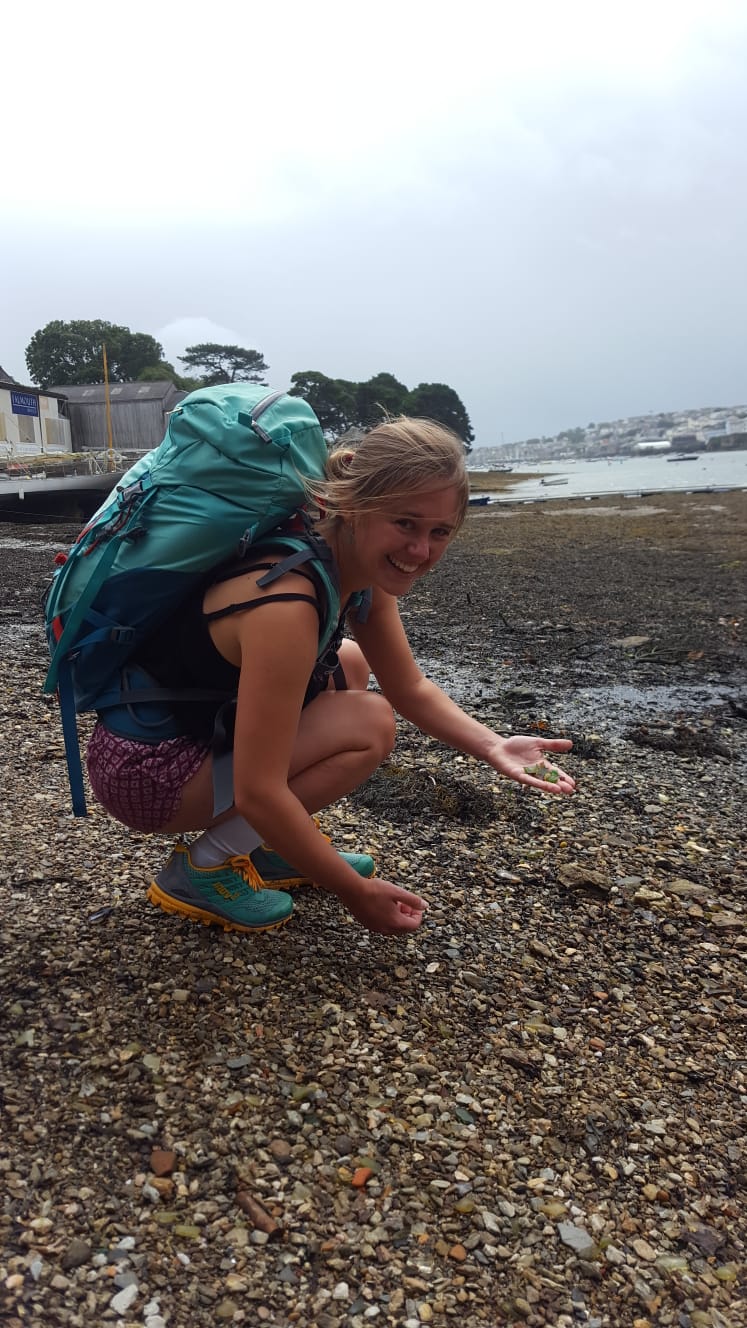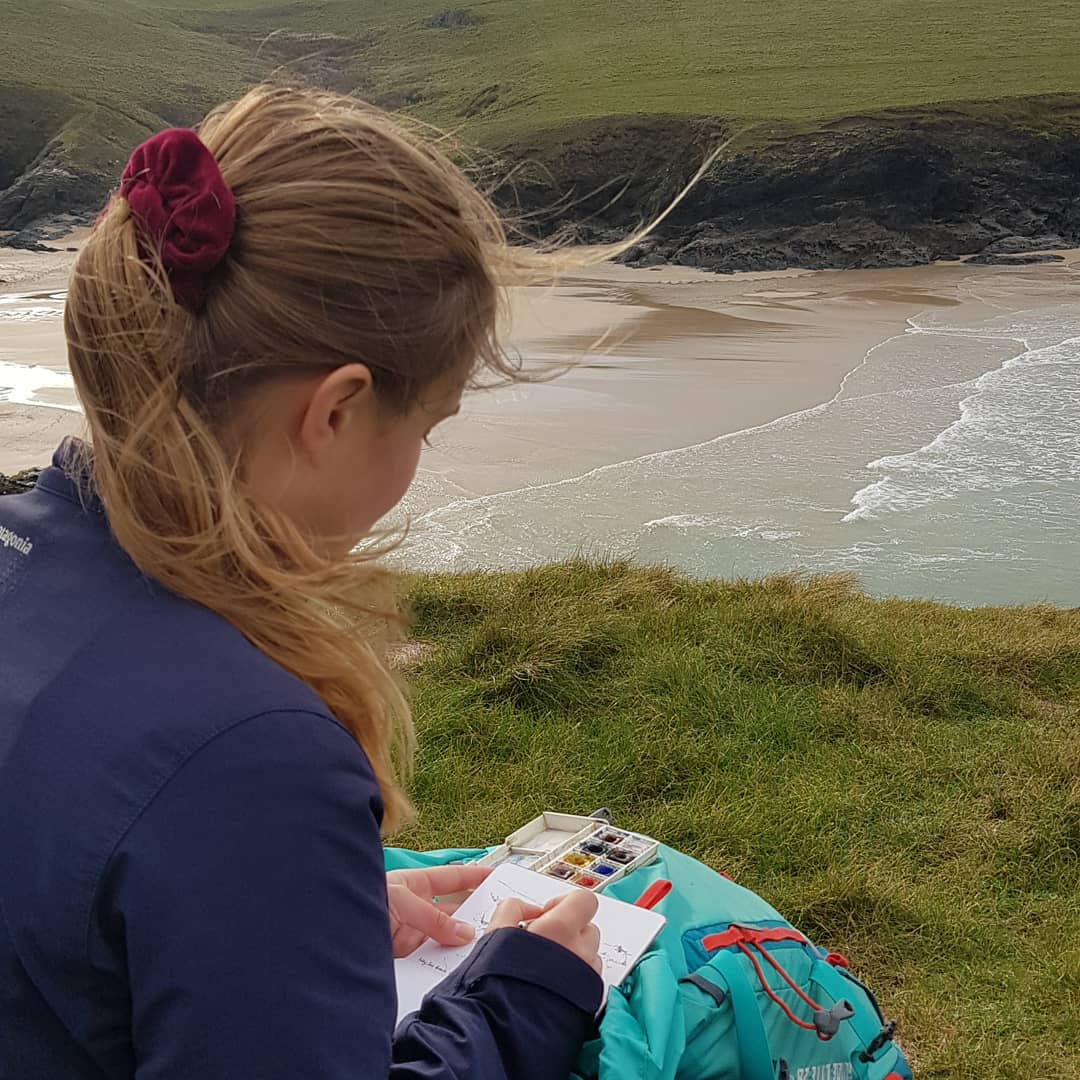We are looking back on some of our MSc graduates who have excelled in scientific research, ecology and conservation around the world since studying with us.
Today we meet Jazz who graduated from MSc Conservation Science and Policy in 2018 and is now a Policy Officer for the RSPB.

Hi Jazz, it’s been a few years since you studied with us, why don’t you tell us a bit about your career in that time that led you to where you are now?
Soon after graduating, I started a role with the RSPB as a Project Manager for the Giving Nature a Home in Cardiff project, which is a public engagement project aiming to connect families and communities in Cardiff with nature. I’ve recently started a new role in the RSPB as a Policy Officer in a UK-wide position.
We are glad you have secured such a fantastic position, what attracted you to study your MSc at the University of Exeter, Penryn Campus?

I originally studied Architecture at Cambridge University and this is where I realised I wanted to make a difference for the environment as I became increasingly concerned about the threats to people and nature from the climate and biodiversity crisis.
Several years ago, I visited the Penryn campus whilst I was considering studying art. Life took me in a different direction, however it had always been a dream to return there and study. Applying to the masters was a really last minute decision for me, and I didn’t look at any other courses or universities in any great detail. However, I was particularly drawn to the fact that the course framed conservation science through a political and social lens. This included some fascinating modules, my favourite being the Nature, Health and Wellbeing module which was taught with the Medical School. The course advert also made it explicitly clear that having a scientific undergraduate degree was not a pre-requirement, which was vital for me to consider applying.
What are your highlights from studying at the University of Exeter?
The lifestyle and location completely exceeded my expectations, and being able to live at the beach and explore the coastline with friends in between studying was simply fantastic.
My favourite part of the course was the research project. I was lucky to work with several other master’s students to survey bumblebees and other pollinators at the Eden Project, National Trust Gardens, Heligan and Trebah. We surveyed each of these gardens weekly for several months and developed our fieldwork, laboratory and scientific analysis skills. I really enjoyed completing this work as part of such a brilliant team.
We’re glad you had such great opportunities! How do you think the MSc help prepare you for your next steps?
Prior to completing the master’s course, I had been trying to gain skills in the environmental sector through independent learning online in my spare time and volunteering during my annual leave. However, I felt that to be offered many of the roles I was interested in, I would need more experience and skills than was practical to achieve in this way. Learning how to use and synthesise the scientific literature, undertake data analysis, and understand fieldwork techniques have been particularly useful.
Since graduating, the skills I feel that have been most useful are project management, communication and resolving problems constructively. I had already started to professionally develop these skills in my role prior to the masters, however I feel that the masters particularly helped certain aspects of my communication skills. This includes how to robustly research and speak confidently about an environmental topic, create policy briefings and summarise scientific literature.

Why did you choose a career in science policy?
I choose this career because I feel driven to be part of the solution in helping mitigate and adapt for the impacts of the climate and biodiversity crisis. I’m genuinely scared about the impacts of these dual crises on humans and nature, but believe it’s still possible to make a difference. My work has been quite varied, but I particularly enjoy days where I have been able to lead or take part in collaborative sessions with my colleagues, activities that have involved community outreach work and public speaking, and also spending time with really passionate people.
Do you have any advice for students looking to pursue a similar path?
My first piece of advice would be to try and understand your skills and what you enjoy, even if this means working in another sector before the environment sector to fully understand where you can add value to an organisation. Secondly, think about your finances as going back to university is expensive and largely the sector isn’t the best paid – even after a few years of employment after my masters, I’m still earning less than I was previously in the private sector. I have no regrets about the path I’ve taken, but I think it’s important to be transparent. And lastly, take some time to understand why you want to work in the sector. It’s helpful on the hard days to remind yourself why you’re on this path and stay hopeful.

Finally, do you have any plans for the future?
I’ll definitely be staying with the RSPB for now, as I’m really enjoying my new policy role and am learning a lot. In my spare time, I work as a wildlife and landscape artist, and I’m currently exploring how I can channel this creativity into activism for the biodiversity and climate crisis. Longer term, I’d like to align my experiences in project management, policy and advocacy and creativity to help make a difference for people and nature.
Thank you Jazz!
If you want to read more profiles from MSc Conservation Science & Policy graduates follow this link or explore our Graduate in Focus homepage to learn more about the degree programmes we have on offer!

